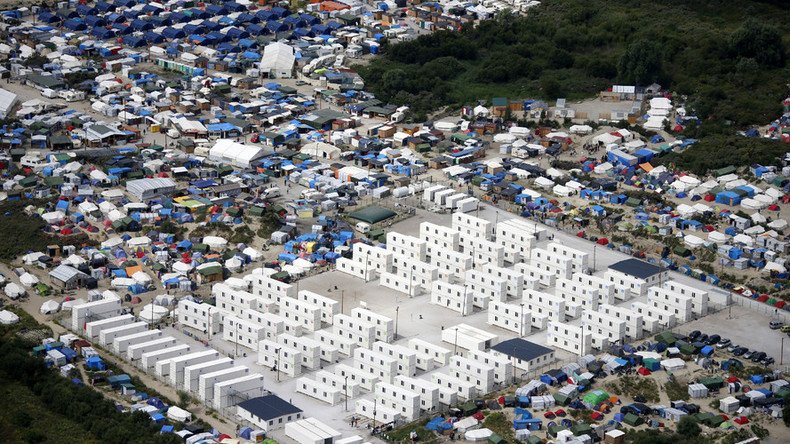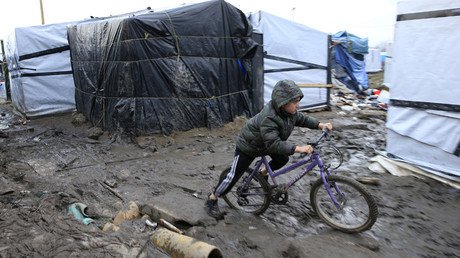Calais ‘Jungle’ population soars to record 6,901 migrants – official census

The number of residents in the Calais ‘Jungle’ camp has increased to a record 6,901, the maximum since its formation in April 2015, the prefecture of Pas-de- Calais announced, citing a “precise and exhaustive” census carried out by border law enforcement officials.
The new “precise and exhaustive” assessment shows a staggering increase of 53 percent in migrant numbers in just two months. The last count, conducted on June 13, showed a figure of some 4,480 people.
Meanwhile local humanitarian aid groups, L’Auberge des Migrants and Help Refugees, counted more than 9,100 people in their own census earlier this month.
The asylum seekers, who are mainly from the Middle East, Africa, and Afghanistan, have traveled to France in the hope of crossing the Channel to the UK, after having had their applications rejected elsewhere, or in expectation of better prospects in Britain than in the rest of the EU. Their numbers tend to swell in the summer when the Mediterranean Sea is warm enough and illegal crossings become more frequent.
But as the numbers swell so does the migrants’ desperation in trying to reach the UK. Refugees attacking truckers and cars who are trying to cross the Channel Tunnel has become a common occurrence. In recent weeks migrants have even engaged in arson, the use of petrol bombs and chainsaw attacks on motorists.
Releasing the new camp count on Friday, authorities reiterated that they are planning to dismantle the entire camp, with no date being set as of yet.
A day earlier, the mayor of Calais raised concerns over the deteriorating situation in the Jungle as she urged the army to step in and sort out the situation. Noting that police forces are “exhausted” after repeatedly being attacked by migrants, Natacha Bourchard, said that she has been urging the “army to come” for over a year.
“There is a state of war in France and Calais is part of France so we do not understand why there are not the same rules as in the rest of the country. The laws of the Republic must be enforced,” Bourchard told the French media, as quoted by the Daily Express.
Calls for the French army to intervene were also voiced on Friday by Richard Burnett, chief executive of Road Haulage Association (RHA), British trade organization which represents members of the road haulage industry.
“The time for talking has run out. If the situation has reached the stage where the police and other security personnel can’t cope, surely the obvious short-term solution must be the deployment of the French military to secure the port area,” he told the Daily Express.
The publication also quoted the UK Independence Party (UKIP) spokesman calling for a direct army involvement. “The French government clearly need to bring in the military to help resolve this situation,” Mike Hookem said.
It still remains unclear what measures the French side will take to quell the situation. Promises to dismantle the camp do not focus on a specific date. Last time authorities tried to regulate numbers residing in the jungle, their efforts failed.
In winter 2016, authorities decided to dismantle the southern part of the makeshift camp to encourage the displaced to move into heated containers or tents on the northern rim of the camp. Migrants were also offered bus rides to refugee centers elsewhere around France in an attempt to ease the pressure on Calais, but that did not solve the problem.














